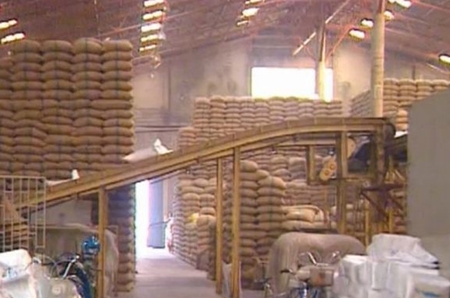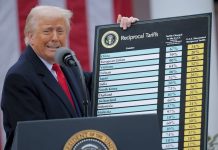BANGKOK, Feb 5 – The Thailand Development Research Institute (TDRI) has said the controversial rice subsidy scheme has reached a dead-end and urged the government to urgently sell rice in its stocks to get money to pay farmers.
TDRI president Somkiat Tangkitvanich said the rice pledging scheme was bankrupt from the start because the government bought rice at high price but sold the grain at cheap price.

The government lacked an accounting system and the financial burden was as high as Bt124 billion while it is expected to earn only Bt10-15 billion from rice trading this year, he said.
The TDRI president said problems arising from the rice scheme were beyond liquidity crisis, adding that the government had paid Bt700 billion between 2011 and 2013 to purchase rice from farmers but earned only Bt150 billion.
The government is short of Bt500 billion while the two-year rice programme has wreaked havoc on the Thai economy and destroyed the rice trading system, said Dr Somkiat.
Ammar Siamwalla, TDRI distinguished scholar, described the rice subsidy programme as “corruption with receipts” and “gigantic corruption racket.”
It is a political party’s populism policy to win over voters in the short term but damaged the country’s economy in the long term, he said.
He said the government’s assets, its rice in stock, are abundant but it could go bankrupt if it keeps the rice for too long, or until the quality drops.
The government’s only solution is to urgently sell the rice to make money to pay farmers, said Dr Ammar, adding that the government should recover some of the corruption money from rice sales to contribute to payments to farmers.
TDRI distinguished fellow Nipon Poapongsakorn said Thailand’s rice export status will plunge lower if the government insists on continuing the rice pledging programme, and such a move will pave the way for Vietnam and India to become rice export leaders in the global market.




